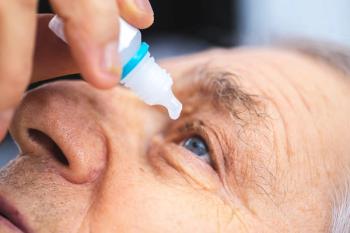
New practice? No problem!: Seasoned practice owners give practice management advise
Practice owners testify to the importance of trying new things, not being afraid to fail, and utilizing community as a resource when starting up a new practice.
Seasoned practice owners reflect back to when they first started their practice and offered their past selves to offer them advise, whether that be keeping your specialty options open and to always being willing to try new things. For those like Jamie Kuzniar, OD, FAAO, FSLS, all trial and error will work itself out anyways.
Video transcript:
Editor's note: The below transcript has been lightly edited for clarity.
Emily Kaiser Maharjan:
If you could give any advice to yourself when you were first starting your practice, what would it be?
A. Paul Chous, OD, MA, FAAO:
It would be, don't buy a new car, number one. So I'm not spending money on things that become less valuable as every week goes by. But also, really to get out into my community, talk to all the family doctors, let them know what I offer as an optometrist so that they have a go-to resource for all their eye care needs, not just diabetes, which is kind of my wheelhouse, but just in general, what optometrists offer. I think a lot of family practitioners aren't really aware to say nothing about other subspecialists within medicine. So that would be my advice to my younger self.
Jamie Kuzniar, OD, FAAO, FSLS:
So my advice to myself 2 years ago when I was starting my practice would be to not sweat small stuff, because it's all going to work out in the end. So sometimes the little hurdles, especially at the beginning of opening your practice, might seem like a huge mountain, but really, it's all going to be fine. And the patients are going to come in, and the staff is going to be fine. And I think just trusting in yourself as a doctor, and if you do what's right for your patients, success will follow. So I've always stood by that. I know at the beginning of starting a practice, or when you first get into practice, things are scary, but it all works out in the end if you do the right thing and you're a good doctor. So that's my advice to myself is to maybe not stress so much and just have faith in yourself that it's all going to work out.
Jennifer Tsai, OD:
I think one of the advices I'd give myself is to not feel limited to one way of practicing. Coming out of school, I think it is a lot of learning,finding your grounds, like where you stand, and feeling comfortable with your flow and seeing patients. But I think what would have been nice is for me to explore all different types of ways to practice and find different passions and interests of how that ties into optometry and exploring all of that. So I think the more you learn and the more experiences you have, I think it contributes to being a better practitioner as a whole in a variety of settings. So I think one of the tips, then, I would have would be to when you get out there, to try all different modes of practicing in clinical settings, in different locations in the area to see what really is best suited for you in that aspect.
Jessilin Quint, OD, MBA, MS, FAAO:
If I can give my younger self a word of advice, or even somebody who is kind of starting with practice ownership, I would say, don't be afraid of failing. Because sometimes with entrepreneurship, you just have to try things. Sometimes things are going to work, sometimes they're not going to work, but you never know. You can never grow, you can never evolve, until you just try, and when it doesn't work out, don't let that defeat you. Just pivot, learn from it, or nuance it to make it a little bit better. But I think earlier on, I was just so almost afraid of trying things, because I didn't want it to fail. I was worried that it wouldn't work and that that would cost me more money, or patients, or staff, or whatever it was. But sometimes things do work out if you just try, and there's always a lesson to be learned if something doesn't quite go according to plan.
Newsletter
Want more insights like this? Subscribe to Optometry Times and get clinical pearls and practice tips delivered straight to your inbox.









































